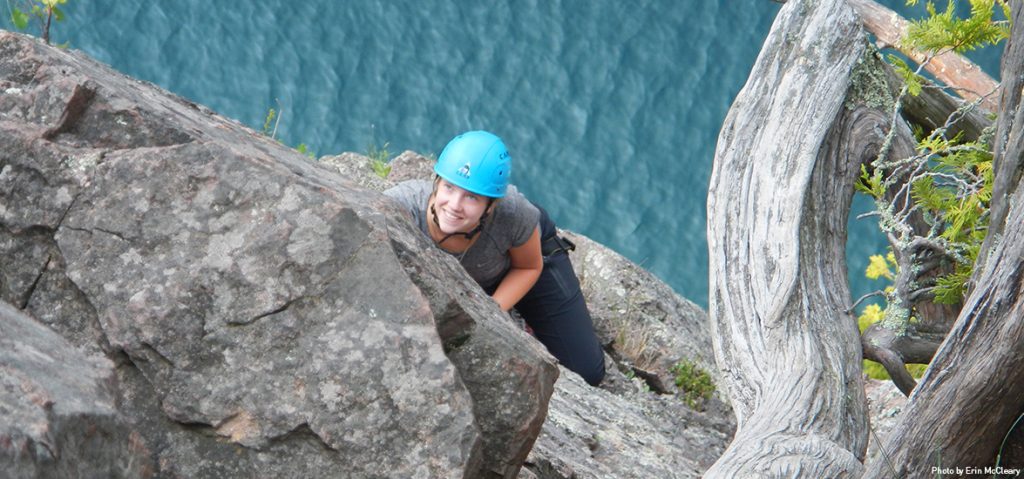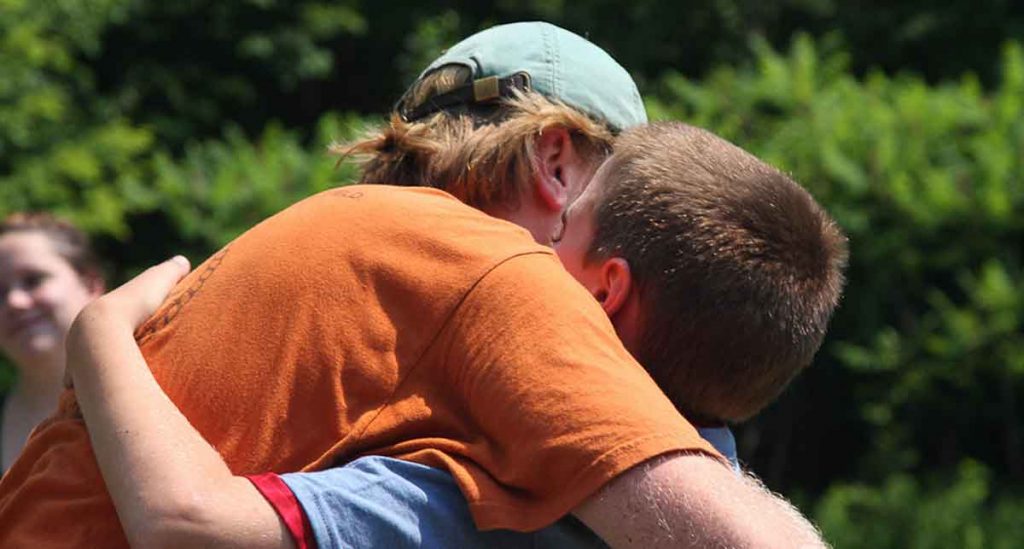Four to seven weeks away from home, away from their friends, away from social media—it sounds like a difficult sell. If you’re considering an Intercept course for your teen, you may be nervous or concerned about how you’ll convince them to do it. While there’s no sure-fire way, here are some tips to help your teen understand why you believe Intercept is important.

The Intercept program challenges teens physically and mentally, offering opportunities to develop positive decision-making skills, strengthen interpersonal relationships, and cultivate a positive self-image.
-
- Be clear: this is not a punishment. Intercept isn’t a program for bad kids who need to be “fixed.” It’s an opportunity for everyone in the family to face struggles and challenges together and try to overcome them. Simply see if you can both agree that you disagree. Recognize each other’s differing points of view, and find some common ground about what you think isn’t working in your relationship currently and what you wish could be better. Emphasize that Intercept is a family program during which everyone will be working on areas of growth together.
- If possible, present your teen with options and allow them to choose the Intercept expedition that appeals to them most. It’s possible your teen could be more open to a program with an activity they want to try or in a place they’d like to see. Encourage them to pursue their interests through the Intercept program.
- Provide lots of information—encourage them to explore the website or watch expedition YouTube videos. We try to give a clear picture of the expedition and answer questions to help families form realistic expectations. You may be able to learn about the trip together—to look up where it is, what the weather might be like or the gear they might need. If they want to speak with one of our admissions advisors about their concerns, provide them that option—we would love to speak with them.
- Acknowledge that it will be difficult—without a phone or the internet, with new people, in a new environment, facing physical challenge. Admit that it’s a lot to ask of your teen, and of your whole family. Offer to train together, either physically, or perhaps by both going without your phones for a couple of hours, working up to a day or even a weekend.
- Share how proud you will be of their accomplishment. Chances are that interactions with your teen leading up to this point have included conflict and negative emotions. Shine light on the positive and communicate in your own words your investment in their success. Just having a conversation about Intercept is huge! It deserves recognition. By communicating appreciation for your teen and what you know they’re capable of, you will set the tone for what’s possible for your teen and family moving forward.
- Commit to change too, to build a sense of “We’re in this together.” For the time your teen is gone, maybe you can commit to working out every day, going without caffeine, or working toward a mutual goal. An Intercept graduate once told me that his father was going to the gym every day, and his mother and aunts were going to church to pray for him every day. He knew his family was rooting for him, and though the trip challenged him in ways he hadn’t expected, he was able to remind himself that he wasn’t alone.
- Give it time. A new idea takes some getting used to. What may initially be shock and resistance might move toward curiosity. “I know this is a lot to take in,” you could say. “I might feel upset if it was me and I had different plans for my summer. Can we agree to talk about it more in a week?”
- Validate their feelings, and put yourself in their shoes. Share something you’ve done in your life that made you nervous or you didn’t want to do at first, but was worthwhile.
Simply not buying it? Don’t panic. Many students show up resistant at first, or are simply unsure and nervous. Instructors are trained to work with resistant students, using compassion and consistency to build trust and rapport. Intercept teens form a team as they begin to understand that they share a common purpose. Instructors build that sense of purpose by showing the group the route—the miles to be covered to reach their destination—and breaking it into manageable pieces. Throughout the trip, Instructors facilitate sharing opportunities, allowing Intercept teens to discover mutual experiences and challenges that they may be facing. Many students graduate glad they’ve had the experience, and thankful that someone gave them the nudge to take the first step.
As a family, you’re also not in this alone. During the enrollment process, your course advisor will share information specific to the particular course you’re interested in, and may be able to help you brainstorm ideas for working with your teen to get them on board. Ask your course advisor if you would like to speak with a family who has gone through the Intercept program. The Intercept program isn’t going to solve all of your problems. But it is a big step in the right direction, and hearing what it’s like on the other side of Intercept can be enlightening and comforting.

The Intercept program won’t solve all of your problems. Instead, it is a beginning to rebuilding trust with your teen.
Get more information about the Intercept program here.
About the Author
Renee Igo was an Outward Bound student at age 15, and has been instructing wilderness expeditions for the Voyageur Outward Bound School for the past eight years. When not instructing, she holds a variety of other teaching positions and raises sheep in Maine.




